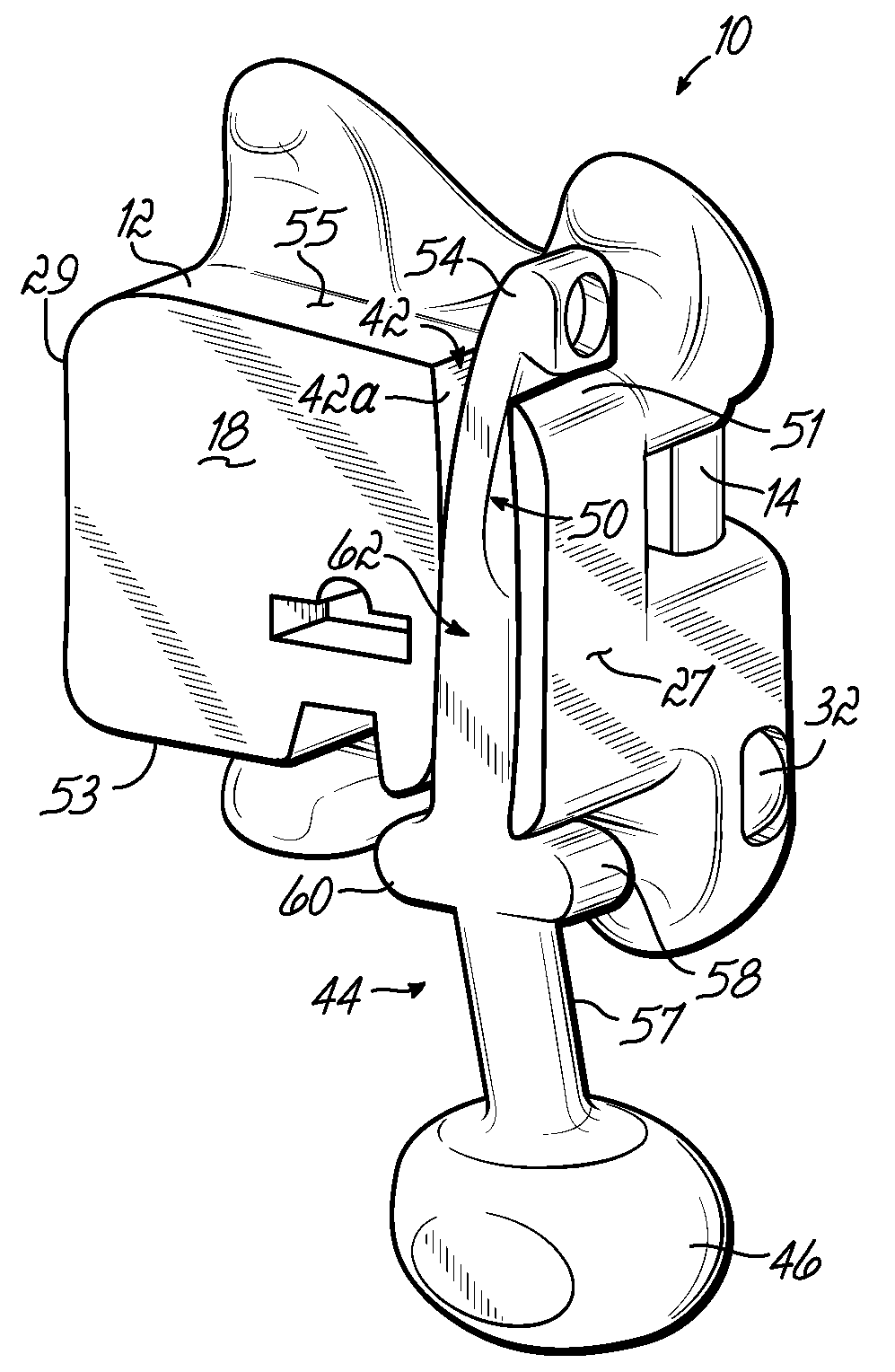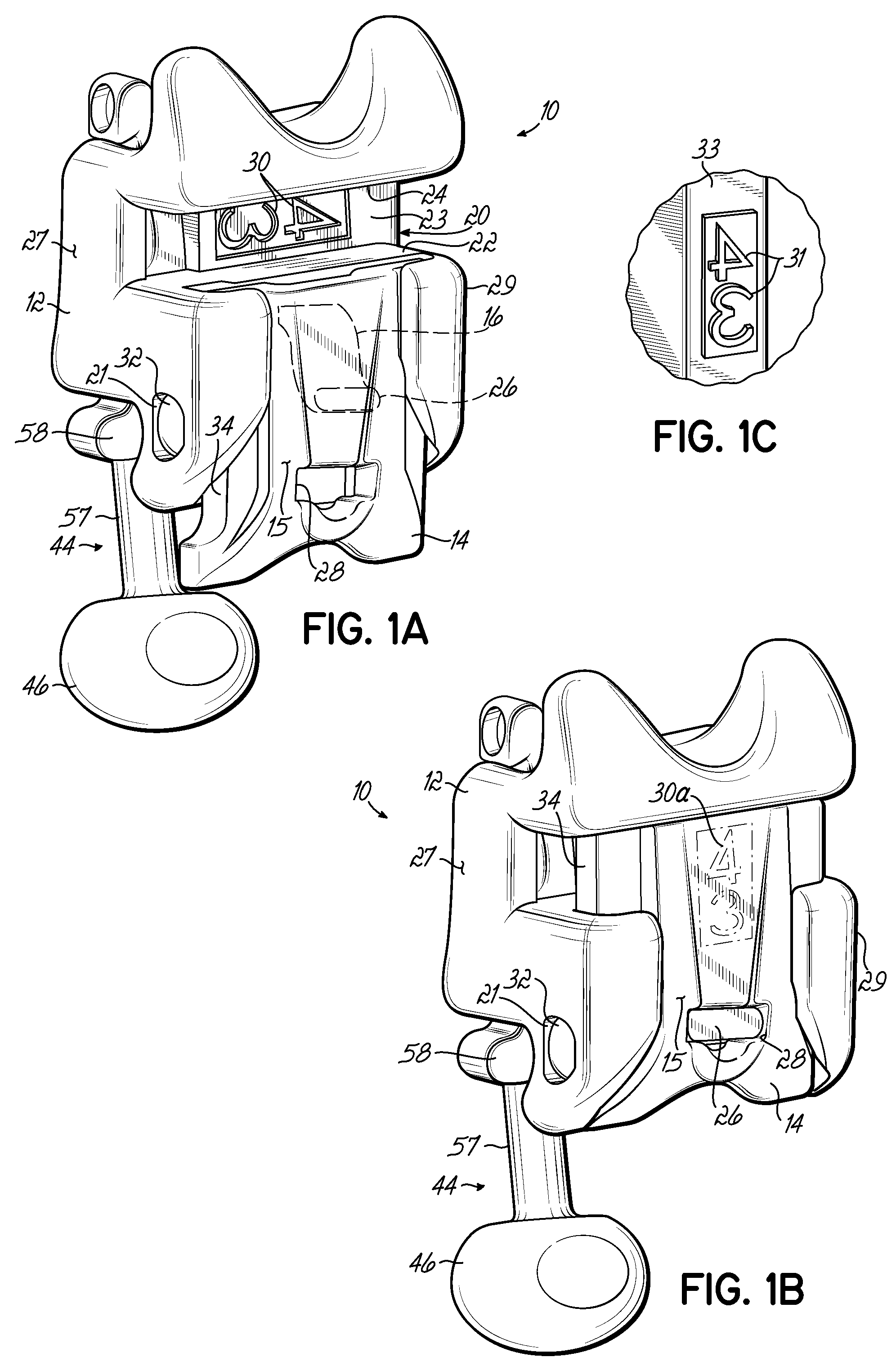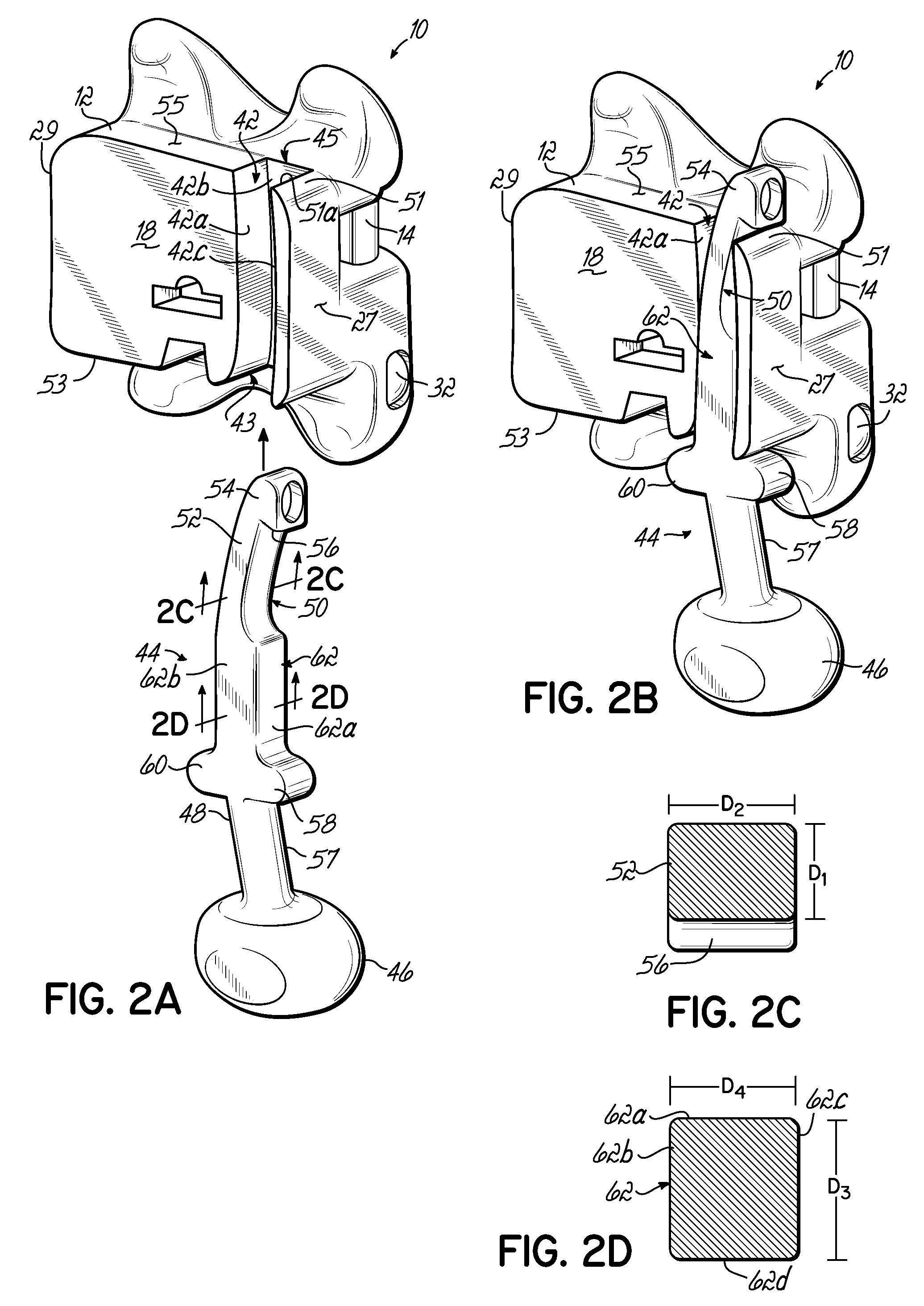Orthodontic brackets and appliances and methods of making and using orthodontic brackets
a technology for applied in the field of orthodontic brackets and appliances, can solve the problems of difficult handling and application of brackets, small spatial clearance of ligating brackets, and certain recognition of traditional ligatures, and achieve the effect of small cross-sectional area
- Summary
- Abstract
- Description
- Claims
- Application Information
AI Technical Summary
Problems solved by technology
Method used
Image
Examples
Embodiment Construction
[0029]Referring to FIGS. 1A and 1B, an orthodontic bracket 10 comprises a self-ligating bracket for use in corrective orthodontic treatments that improve a patient's occlusion. The orthodontic bracket 10, which may be constructed from a metal, a ceramic, a plastic, or a composite construction of multiple types of these materials, includes a bracket body 12 having an archwire slot 20, a movable ligating cover 14 movable relative to the archwire slot 20 of the bracket body 12 in an occlusal-gingival direction between opened and closed positions, and a spring arm 16 that latches the ligating cover 14 in the closed position. When the ligating cover 14 is in the opened position shown in FIG. 1A, the archwire slot 20 is accessible for inserting an archwire 25 (FIG. 3). When the ligating cover 14 is in the closed position shown in FIG. 1B, access to archwire slot 20 is blocked or otherwise occluded.
[0030]A bonding base 18 (FIG. 2A) on the bracket body 12 is used to secure the orthodontic b...
PUM
 Login to View More
Login to View More Abstract
Description
Claims
Application Information
 Login to View More
Login to View More - R&D
- Intellectual Property
- Life Sciences
- Materials
- Tech Scout
- Unparalleled Data Quality
- Higher Quality Content
- 60% Fewer Hallucinations
Browse by: Latest US Patents, China's latest patents, Technical Efficacy Thesaurus, Application Domain, Technology Topic, Popular Technical Reports.
© 2025 PatSnap. All rights reserved.Legal|Privacy policy|Modern Slavery Act Transparency Statement|Sitemap|About US| Contact US: help@patsnap.com



